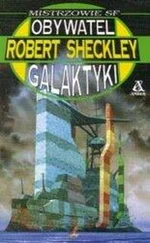Robert Sheckley - Shall We Have a Llittle Talk?
Здесь есть возможность читать онлайн «Robert Sheckley - Shall We Have a Llittle Talk?» весь текст электронной книги совершенно бесплатно (целиком полную версию без сокращений). В некоторых случаях можно слушать аудио, скачать через торрент в формате fb2 и присутствует краткое содержание. Жанр: Социально-психологическая фантастика, на английском языке. Описание произведения, (предисловие) а так же отзывы посетителей доступны на портале библиотеки ЛибКат.
- Название:Shall We Have a Llittle Talk?
- Автор:
- Жанр:
- Год:неизвестен
- ISBN:нет данных
- Рейтинг книги:4 / 5. Голосов: 1
-
Избранное:Добавить в избранное
- Отзывы:
-
Ваша оценка:
- 80
- 1
- 2
- 3
- 4
- 5
Shall We Have a Llittle Talk?: краткое содержание, описание и аннотация
Предлагаем к чтению аннотацию, описание, краткое содержание или предисловие (зависит от того, что написал сам автор книги «Shall We Have a Llittle Talk?»). Если вы не нашли необходимую информацию о книге — напишите в комментариях, мы постараемся отыскать её.
Shall We Have a Llittle Talk? — читать онлайн бесплатно полную книгу (весь текст) целиком
Ниже представлен текст книги, разбитый по страницам. Система сохранения места последней прочитанной страницы, позволяет с удобством читать онлайн бесплатно книгу «Shall We Have a Llittle Talk?», без необходимости каждый раз заново искать на чём Вы остановились. Поставьте закладку, и сможете в любой момент перейти на страницу, на которой закончили чтение.
Интервал:
Закладка:
'I was not referring tc a short-range personal danger,' Old Doc says scornfully. 'What I fear is the destruction of our city, the slaughter of our loved ones, and the annihilation of our culture.'
Herb and Fred stop. 'What you talking about, Doc? He's just one stinking alien; you push a knife in his guts, he'll bleed like anyone else.'
'Fools! Schlemiels!' thunders wise Old Doc. 'Of course, you can kill him! But what happens after that?'
'Huh?' says Fred, squinting his china-blue pop eyes.
'Idiots! Cochons! You think this is the only spaceship these aliens got? You think they don't even know whereabouts this guy has gone? Man, you gotta assume they got plenty more ships where this one came from, and you gotta also assume that they'll be damned mad if this ship doesn't show up when it's supposed to, and you gotta assume that when these aliens learn the score, they're gonna be damned sore and buzz back here and stomp on everything and everybody.'
'How come I gotta assume that?' asks feeble-witted Fred.
' 'Cause it's what you'd do in a deal like that, right?'
'I guess maybe I would at that,' says Fred with a sheepish grin. 'Yeah, I just might do that little thing. But look, maybe they wouldn't.'
'Maybe, maybe," mimics wise Old Doc. 'Well, baby, we can't risk the whole ball game on a goddamned maybe. We can't afford to kill this alien joker on the chance that maybe his people wouldn't do what any reasonable-minded guy would do, which is, namely, to blow us all to hell.'
'Well, I suppose we maybe can't,' Herbie says. 'But Doc, what can we do?'
'Just wait and see what he wants.'
2
A scene very much like that, according to reliable reconstruction, had been enacted at least thirty or forty times. It usually resulted in a policy of wait and see. Occasionally, the contactor from Earth was killed before wise counsel could prevail; but Jackson was paid to take risks like that.
Whenever the contactor was killed, retribution followed with swift and terrible inevitability. Also with regret, of course, because Earth was an extremely civilized place and accustomed to living within the law. No civilized, law-abiding race likes to commit genocide. In fact, the folks on Earth consider genocide a very unpleasant matter, and they don't like to read about it or anything like it in their morning papers. Envoys must be protected, of course, and murder must be punished; everybody knows that. But it still doesn't feel nice to read about a genocide over your morning coffee. News like that can spoil a man's entire day. Three or four genocides and a man just might get angry enough to switch his vote.
Fortunately, there was never much occasion for that sort of mess. Aliens usually caught on pretty fast. Despite the language barrier, aliens learned that you simply don't kill Earthmen.
And then, later, bit by bit, they learned all the rest.
The hotheads had sheathed their knives. Everybody was smiling except Jackson, who was grinning like a hyena. The aliens were making graceful arm and leg motions, probably of welcome.
'Well, that's real nice,' Jackson said, making a few graceful gestures of his own. 'Makes me feel real to-home. And now, suppose you take me to your leader, show me the town, and all that jazz. Then I'll set myself down and figure out that lingo of yours, and we'll have a little talk. And after that, everything will proceed splendidly. En avantP
So saying, Jackson stepped out at a brisk pace in the direction of the city. After a brief hesitation, his new found friends fell into step behind him.
Everything was moving according to plan.
Jackson, like all the other contactors, was a polyglot of singular capabilities. As basic equipment, he had an eidetic memory and an extremely discriminating ear. More important, he possessed a startling aptitude for language and an uncanny intuition for meaning. When Jackson came up against an incomprehensible tongue, he picked out, quickly and unerringly, the significant units, the fundamental building blocks of the language. Quite without effort he sorted vocalizations into cognitive, volitional, and emotional aspects of speech. Grammatical elements presented themselves at once to his practised ear. Prefixes and suffixes were no trouble; word sequence, pitch, and reduplication were no sweat. He didn't know much about the science of linguistics, but he didn't need to know. Jackson was a natural. Linguistics had been developed to describe and explain things which he knew intuitively.
He had not yet encountered the language which he could not learn. He never really expected to find one. As he often told his friends in the Forked Tongue Club in New York, 'Waal, shukins, there just really ain't nuthin' tough about them alien tongues. Leastwise, not the ones I've run across. I mean that sincerely. I mean to tell you, boys, that the man who can express himself in Sioux or Khmer ain't going to encounter too much trouble out there amongst the stars.'
And so it had been, to date ...
Once in the city, there were many tedious ceremonies which Jackson had to endure. They stretched on for three days -about par for the course; it wasn't every day that a traveller from space came in for a visit. So naturally enough every mayor, governor, president, and alderman, and their wives, wanted to shake his hand. It was all very understandable, but Jackson resented the waste of his time. He had work to do, some of it not very pleasant, and the sooner he got started, the quicker it would be over.
On the fourth day he was able to reduce the official nonsense to a minimum. That was the day on which he began in earnest to learn the local language.
A language, as any linguist will tell you, is undoubtedly the most beautiful creation one is ever likely to encounter. But with that beauty goes a certain element of danger.
Language might aptly be compared to the sparkling, ever-changing face of the sea. Like the sea, you never know what reefs may be concealed in its pellucid depths. The brightest water hides the most treacherous shoals.
Jackson, well prepared for trouble, encountered none at first. The main language (Hon) of this planet (Na) was spoken by the overwhelming majority of its inhabitants (En-a-To-Na - literally, men of the Na, or Naians, as Jackson preferred to think of them). Hon seemed quite a straightforward affair. It used one term for one concept, and allowed no fusions, juxtapositions, or agglutinations. Concepts were built up by sequences of simple words ('spaceship' was ho-pa-aie-an - boat-flying-outer-sky). Thus, Hon was very much like Chinese and Annamite on Earth. Pitch differences were employed not only intentionally to differentiate between homonyns, but also positionally, to denote gradations of 'perceived realism', bodily discomfort, and three classes of pleasurable expectation. All of which was mildly interesting but of no particular difficulty to a competent linguist.
To be sure, a language like Hon was rather a bore because of the long word-lists one had to memorize. But pitch and position could be fun, as well as being absolutely essential if one wanted to make any sense out of the sentence units. So, taken all in all, Jackson was not dissatisfied, and he absorbed the language as quickly as it could be given to him.
It was a proud day for Jackson, about a week later, when he could say to his tutor: 'A very nice and pleasant good morning to you, most estimable and honoured tutor, and how is your blessed health upon this glorious day?'
'Felicitations most ird wunk !' the tutor replied with a smile of deep warmth. 'Your accent, dear pupil, is superb! Positively gor nak, in fact, and your grasp of my dear mother tongue is little short of ur nak tai.'
Читать дальшеИнтервал:
Закладка:
Похожие книги на «Shall We Have a Llittle Talk?»
Представляем Вашему вниманию похожие книги на «Shall We Have a Llittle Talk?» списком для выбора. Мы отобрали схожую по названию и смыслу литературу в надежде предоставить читателям больше вариантов отыскать новые, интересные, ещё непрочитанные произведения.
Обсуждение, отзывы о книге «Shall We Have a Llittle Talk?» и просто собственные мнения читателей. Оставьте ваши комментарии, напишите, что Вы думаете о произведении, его смысле или главных героях. Укажите что конкретно понравилось, а что нет, и почему Вы так считаете.





